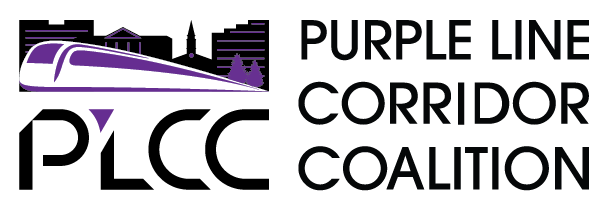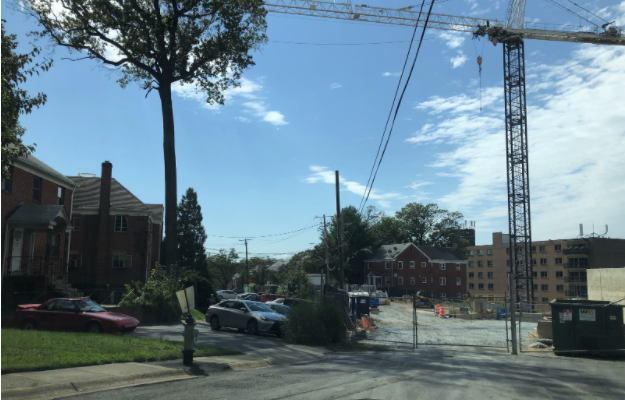PLCC Forges Ahead as Purple Line Construction Hits Challenges
You’ve probably seen the recent headlines. As of October, 2020, after a judge’s ruling in an ongoing dispute between the state and the private partners building the Purple Line, construction has significantly slowed. In light of these new challenges, we have been asking ourselves – do we pause? Do we change course?
Our answer is no. The PLCC has always focused on the people and places just beyond the Purple Line tracks – so, in many respects, our work has not changed. The stakes remain high.
Real estate pressures will continue driving up housing costs, threatening to displace the corridor’s low- and moderate-income residents of color. We can’t afford to lose momentum on our goal of preserving or developing 17,000 affordable units.
The halt of construction itself poses yet another challenge for many living or doing business along the line. The Purple Line, in its incomplete form, has significantly diminished quality of neighborhood life for many corridor residents. And since construction began, local business owners have endured closed parking lots and disrupted customer access — now with no end in sight. Completion of the Purple Line is a critical step on our path to vibrant neighborhoods and flourishing small businesses.
As we work toward a thriving labor market along the corridor, we are reminded of why so many people in the community wanted the Purple Line in the first place. The line itself can be a potent tool for racial and economic equity – creating an unprecedented east-west connection between job seekers of color, education and training opportunities, and job centers.
Therefore, getting the project to the finish line becomes part of our work in the months ahead. We remain optimistic that there is enough work completed and public and private support to bring this project to completion, even if we don’t know when. This is not the first stumbling block in the decades of advocacy that brought the Purple Line project to this point. Many successful transit projects once faced hurdles that seemed insurmountable–WMATA’s Green Line and Denver’s RTD N-line being two. Together, supporters of transit can ensure that the Purple Line is completed.
In short, we are accelerating our commitment to development along the Purple Line Corridor that centers on racial and economic equity. We continue to believe that transit can be an important driver of equitable and sustainable growth, and that the people along the corridor deserve the greatest promise of the Purple Line. The pace we set for ourselves now paves the way for that future.

